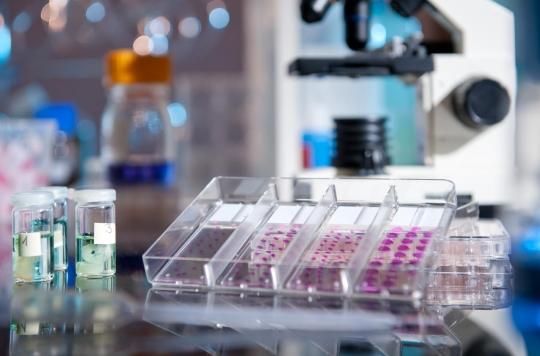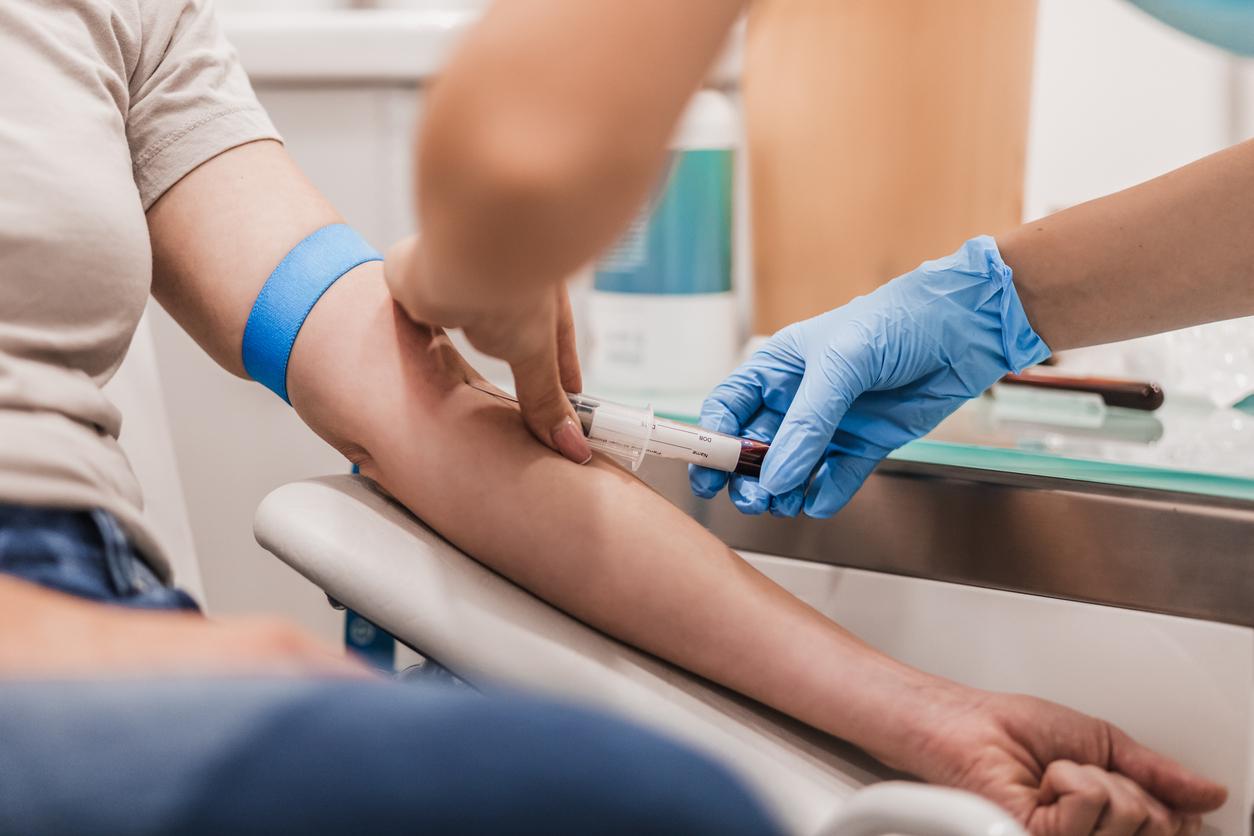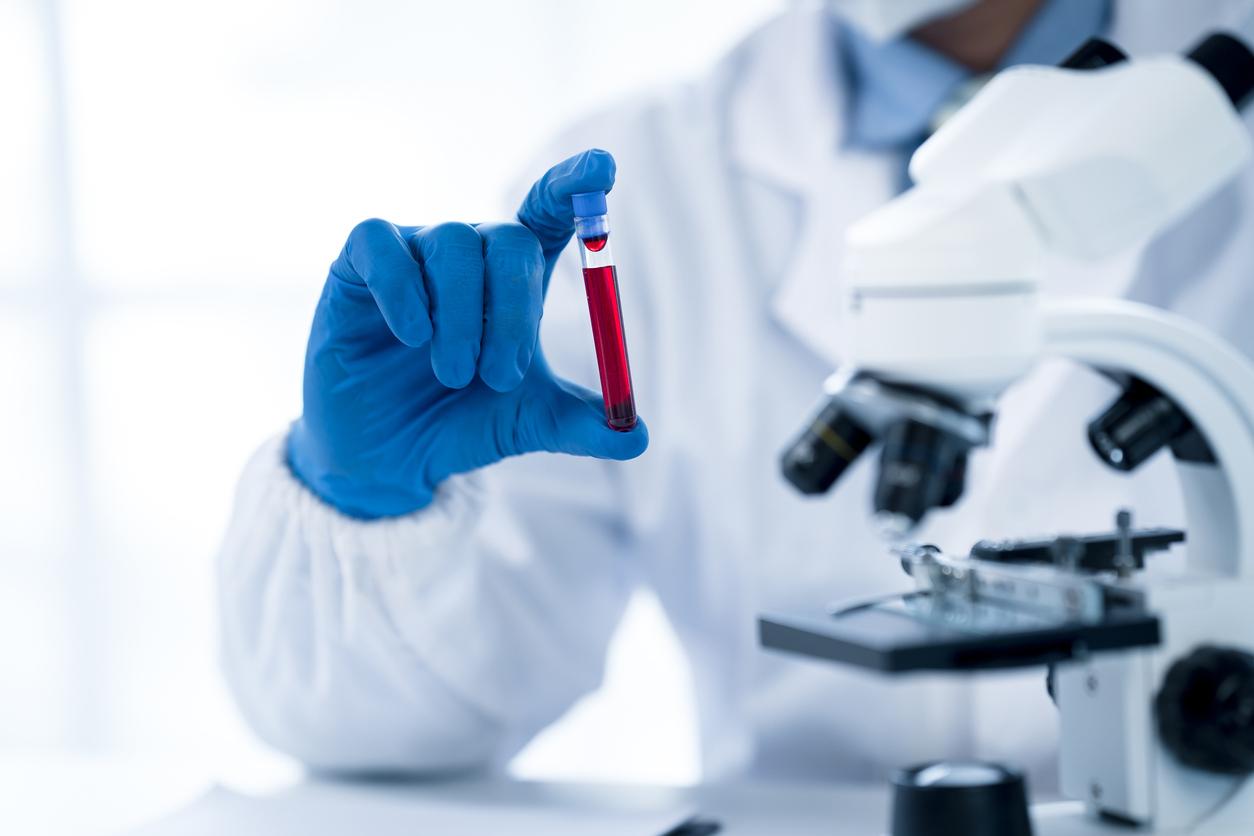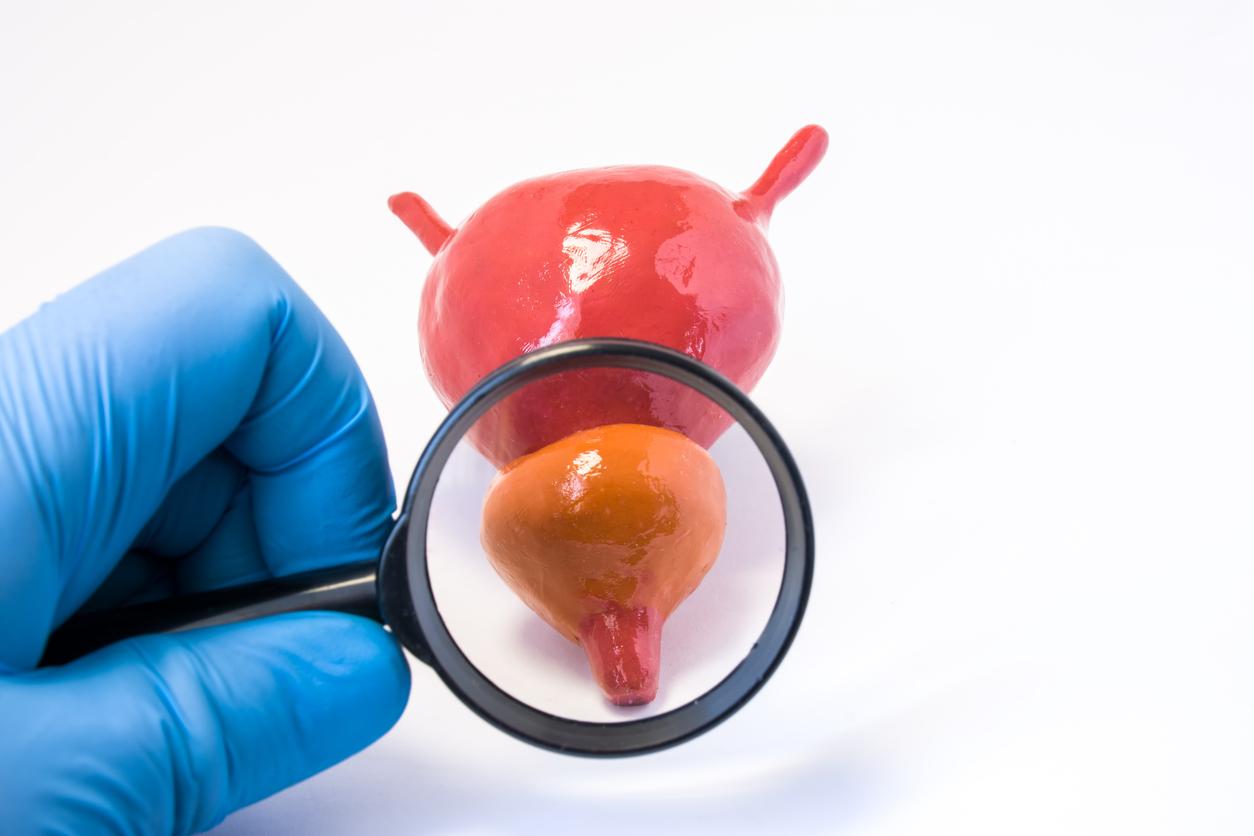In patients with resistant prostate cancer, regular blood testing to measure the number of circulating cancer cells (CTCs) may help predict survival.

- This liquid biopsy, rapid and non-invasive, makes it possible to detect in the blood the level of circulating cancerous cells (CTC) in the blood in the event of resistant prostate cancer.
- A high CTC level before or during chemotherapy indicates a lower cure and survival rate.
With 50,400 new cases of prostate cancer and 8,100 deaths estimated in 2018 in metropolitan France, prostate cancer remains the most common in men over 50.
Although this cancer has a good prognosis with a survival of more than 90% of affected patients, resistance to hormone therapy and the appearance of metastases greatly reduce the probability of recovery.
According to a new study, conducted by the Barts Cancer Institute at Queen Mary University of London (UK) and presented at the National Cancer Research Institute festival, regular blood tests before and during chemotherapy for prostate cancer can detect if a patient is resistant or develops resistance to chemotherapy treatment.
CTC detection to predict progression and survival rate
In men with prostate cancer that has begun to metastasize and is unresponsive to hormone therapy, the recommended treatment is docetaxel, a chemotherapy drug that can significantly improve survival. However, some patients are resistant or acquire resistance to docetaxel.
The blood test developed by the research team makes it possible to identify this resistance to docetaxel and to predict survival based on the number and types of cancer cells that have detached from the tumor and entered the bloodstream. These cells are called circulating cancer cells or CTCs.
“Our ability to collect and analyze CTCs before, during and after treatment meant we could monitor changes in CTCs in response to treatment”explains Caitlin Davies, who supervised the research.
To develop it, the researchers took blood samples from 56 patients with advanced prostate cancer. Samples were taken before they started docetaxel treatment, after their first dose of chemotherapy, before their fifth dose, and after they had completed all doses, i.e. for a period of approximately six to eight month. A total of 205 samples were available for analysis.
Using a blood filtration system called Parsortix, the researchers were able to identify the CTCs present in the blood, and classify them into different subtypes.
“We then looked for patterns in the data of men who did or did not respond to treatment, or whose disease progressed sooner than others after treatment. (…) For example, an increase in the number of CTCs may indicate a lack of response to treatment. Additionally, by monitoring the emergence of potentially drug-resistant CTCs, we can modify treatment tactics at an early stage and in a personalized and timely manner for the patient.”explains the researcher.
With her team, Caitlin Davies found that men were less likely to respond to docetaxel and therefore saw their chances of recovery decrease and their risk of dying within 18 months if more than six CTCs per 7.5 ml of blood were detected before. their first dose of docetaxel. In comparison, progression-free survival was 17 months and overall survival was three years for men who detected fewer than six CTCs per 7.5 ml of blood.
A high CTC count towards the end of treatment predicted a shorter time to disease progression and death.
“This insight into how CTC dynamics leads to reduced survival and progression-free times is vital for clinicians. It will allow them to quickly change treatment from docetaxel to an alternative, which could significantly improve the patient’s chances of long-term survival”, points out Caitlin Davies.
Discovery of a new biomarker
The researchers also found that a protein encoded by a gene called KLK2 was significantly better at predicting time to disease progression and death than the current gold standard protein, prostate-specific antigen (PSA), which is encoded by the KLK3 gene.
“Elevated levels of KLK2 gene expression were found in patients who were unresponsive to docetaxel, and this elevated expression was also associated with a shorter time to disease progression and death. These results are important because they highlight KLK2 as a possible alternative and better biomarker for the prognosis of prostate cancer”says Caitlin Davies, who hopes that this discovery can lead to the development of a new generation of therapies.
Last advantage to this liquid biopsy which allows the detection of CTCs in the blood: the ease with which it can be generalized. “It is minimally invasive, painless and easily reproducible, allowing patients to avoid painful tissue biopsies. It only takes the patient a few minutes, and we can get results within two or three days, whereas “a tissue biopsy can take up to ten days. Liquid biopsies are very cost effective compared to tissue biopsies, CT scans or MRIs”concludes the researcher, who now wishes to validate these results in the context of a larger clinical trial.

.

















